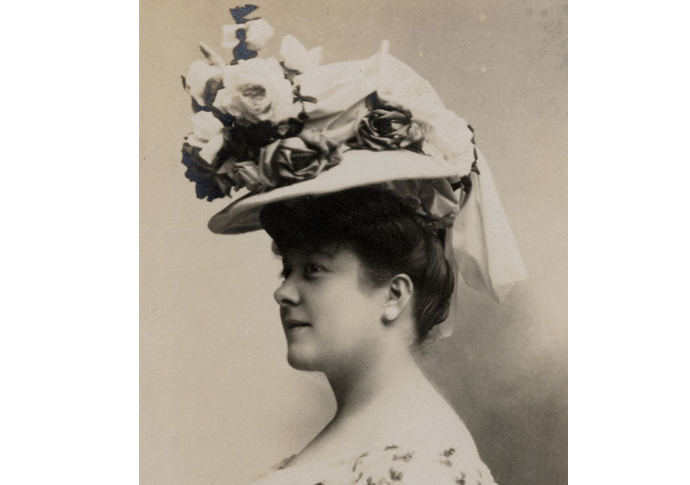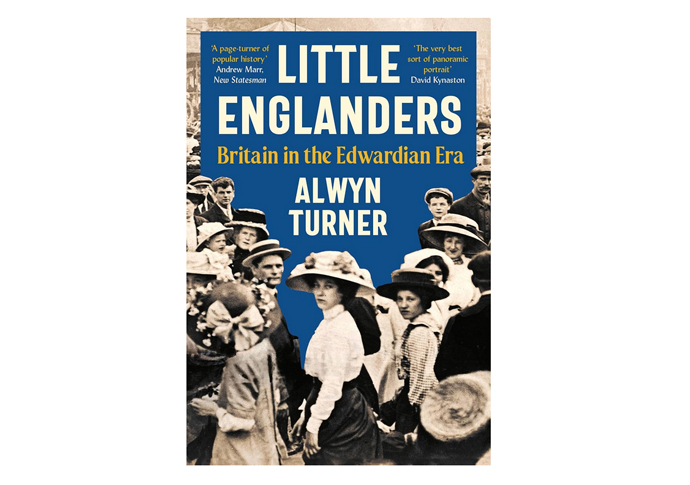The gilded age: how music hall went ‘woke’
As a new book entertainingly illustrates, the Edwardian era ushered in many changes... not least for music hall audiences, writes Peter Gruner
Friday, 7th February 2025 — By Peter Gruner

Florrie Forde by George Henry Hana
WATCH OUR POLITICS CHANNEL, PEEPS, ON YOUTUBE
IF you lived in Camden in Edwardian times and fancied a good old-fashioned sing-along with friends and neighbours you could pop along to the nearest music hall. There was no TV or radio at the turn of the 20th century but the worry of the music halls was that the atmosphere was not always congenial.
People in the audience would often loudly slag off the performers for not being good enough and sometimes those same performers would shout back in defence.
Camden author Alwyn Turner describes the scenes, in his highly praised new book, Little Englanders, about the period between the death of Queen Victoria in 1901 and the start of the First World War.
Speaking to Review, Turner referred to one “wokish” example of the times in 1907 when the government banned Gilbert and Sullivan’s popular musical The Mikado from being performed in case it offended Japanese Prince Fushimi Sadanaru, here on visit. Military bands were also forbidden to play music from the show.
Turner said: “It was an absurd act of censorship – as virtually everyone agreed – since the musical satire was being directed very clearly at the British. Furthermore, there had been no complaints from Japan.”
Music halls, which originated from mid-19th-century taverns, were often rowdy places where audiences were seldom sober. Turner writes: “And audiences were not shy about expressing their opinion if an act failed to satisfy.”
At some venues even bottles of booze were chained to tables to stop them being hurled onto the stage. And in some rougher halls the orchestra pit was covered with an iron grille, so that musicians might be spared the impact of missiles being thrown.

Alwyn Turner
There were even venues where balconies overhung the stage, giving disgruntled members of the audience the opportunity to urinate from a great height on the unfortunate performers.
However, nothing held back the campaigning Women’s Freedom League in 1909 fighting for females to get the vote. They made their way into the Islington Empire in the High Street to make a speech about the urgent need for female equality. The uproar on the first night “resembled pandemonium,” said the press.
Turner writes: “Neither of the speakers could get a word in edgeways, and the management was not a little alarmed lest a fight should ensue in both pit and gallery. But the women stuck to their task, and by the end of the week they’d won over the crowds.”
Women only started to get the vote in 1918.
Most of the songs of the time disappeared without trace, but a few are still recognised today. They include Florrie Forde’s Down at the Old Bull and Bush, written in 1904 about the Hampstead pub of the same name, which is still going strong. Then there’s Ta-ra-ra Boom-de-ay (1891), Bicycle Made for Two (1892), I do Like to Be Beside The Seaside (1909) and It’s A Long Way To Tipperary (1912).
Comedians and singers took their chances when they performed, hoping that the audience was in a good mood. No problem, however, with Consul the monkey when he appeared to huge acclaim at the London Hippodrome in Charing Cross Road in 1904.
He was trained to mimic various human activities, and billed as evidence that humans originated from apes.

There was some good news for the people, of course. The first ever national Pensions Act was introduced 1909 by the Liberal government, providing pensions for those over 70. Although not a lot of money, it’s interesting how it might compare with today amid talk of removing the triple lock on the state pension, which keeps it up with inflation.
Turner writes how the pension move was joy to many people. A postmistress in the East End of London said: “Many of the old women kissed the money. And one woman didn’t even get that far. She fell to her knees at the doorway of the post office and cried out. ‘Thank God, thank God, I have lived to see this day’.”
Many praised the real transformation of Britain during the 60-year reign of the late Queen Victoria.
It had seen the arrival of photographs, gramophone records, telegraphs, telephones, typewriters, the penny post, paperback novels, and the beginning of mass circulation newspapers.
The Victorian and Edwardian eras ushered in bicycles, motor cars, underground railways, electric trams, the Manchester Ship Canal, the Great Western Railway and the London sewerage system.
Turner, who attended the former Bedford College in Regent’s Park, said the music halls began to change after the First World War. “Much of the audience of the old, vulgar music hall were men who sadly perished in the First World War. Afterwards, music hall promoters sought nicer quieter audiences and more women. The new music halls led to variety music and a lot more convention.”
Turner, who has lived in the borough for more than 30 years, has great fondness for Swiss Cottage and it’s “excellent library” and the former Swiss Cottage market.
• Little Englanders: Britain in the Edwardian Era. By Alwyn Turner, Profile Books, £11.99
